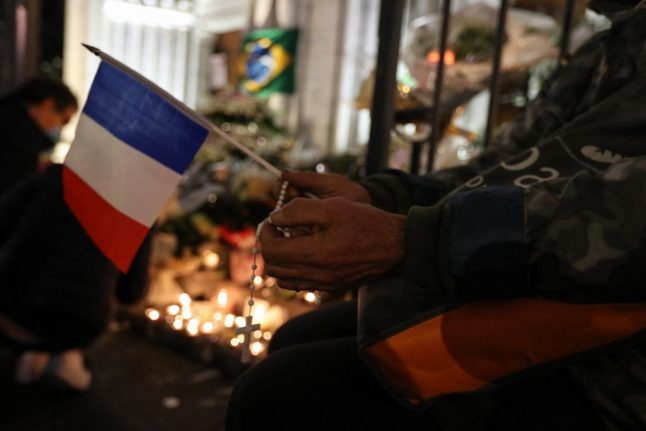Reader question: Why does France have Catholic holidays like Ascension, Assumption and Toussaint? I thought it was supposed to be a secular republic?
The French Republic is very proud of its secular principles but yet as some readers observed, many public holidays are linked to Catholic celebrations, a reminder of its religious history.
Roughly half of the public holidays in France represent Catholic events: Easter, Ascension (a movable feast, but May 9th this year), Assumption (August 15th), Pentecost (for some people), All Saints’ day (November 1st) and of course Christmas.
If you live in Alsace-Moselle (formerly Alsace-Lorraine) you get two extra holidays, both religious ones – Good Friday (the Friday before Easter) and St Stephen’s Day (December 26th) – more on why that is later.
France’s secular stance takes its roots in the Declaration of the Rights of Man and of the Citizen of 1789 but was formally codified into law in 1905.
France does not recognise, pay or subsidise any religion. So French local and national governments are not allowed to finance churches, mosques, synagogues or temples, and religious symbolism is not allowed in State buildings or for representatives of the State.
It is these rules that mean that, for example, French primary schools don’t perform nativity plays at Christmas and French female police officers are not permitted to wear the Muslim headscarf while on duty.
EXPLAINED What does France’s secularism really mean?
The flip side of this is that freedom of worship is also protected in the 1905 law, and everyone is allowed to practice whatever religion they choose in their private life.
The only exception to the secular rules are the three departments of Alsace-Moselle. When the 1905 law was passed the region was part of Germany and only became French again at the end of World War I. As part of the compromise agreed, today bishops, priests, rabbis and pastors have the status of civil servants and the state pays for the maintenance of religious buildings. Religious education in public schools is also preserved.
So all that seems to pretty strongly suggest that Catholic festivals should play no part in France’s holiday calendar and only the secular events – such as the Fête nationale on July 14th or VE Day on May 8th – should remain.
However, by the time secularism was formally codified into law in 1905 there was already a fairly fixed calendar of holidays and festivals – although this had already been slimmed down under the Napoleonic government in 1802 – and suddenly axing popular festivals was likely to go down pretty badly with the population at large.
Essentially then, this was a pragmatic compromise between tradition and secularism and over the years politicians have been understandably reluctant to tell the French they must lose their holidays.
But it’s noticeable that all the religious festivals in the calendar are Christian ones, and while this may reflect France’s history it’s not so representative of the current demographics, where an estimated 10 percent of the population either practice the Muslim faith or have a Muslim family background.
So could we see a scenario when we knock Ascension on the head but make Eid a public holiday?
It’s theoretically possible – in 2015 the French parliament voted through an amendment that would allow the départments of France’s Overseas Territories (Martinique, Gaudeloupe, Mayotte, Réunion and French Guiana) to switch a Catholic bank holiday for another religious celebration to suit different faiths in the local population.
However none of the overseas départements has yet made that move.
A fresh amendment would be required to make the same move in mainland France, and there appears to be little political appetite for that at present.
What are France’s public holidays?
- January 1st: New Year’s Day
- Good Friday (the Friday before Easter Monday, only a holiday in Alsace-Lorraine)
- Easter Monday (movable date)
- May 1st: May Day
- May 8th: VE Day
- Ascension (movable date)
- Pentecost (movable date and no longer an official holiday)
- July 14th – Bastille Day
- August 15th – Assumption
- November 1st – All Saints
- November 11th – Armistice Day
- December 25th – Christmas
- December 26th – St Stephen’s Day (only a holiday in Alsace-Lorraine)



 Please whitelist us to continue reading.
Please whitelist us to continue reading.
Member comments